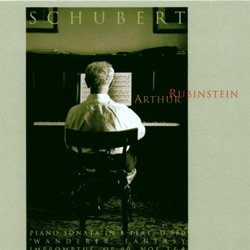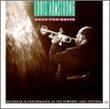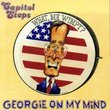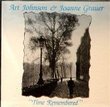| All Artists: Franz [Vienna] Schubert, Artur Rubinstein Title: Rubinstein Collection, Vol. 54 Members Wishing: 0 Total Copies: 0 Label: RCA Release Date: 10/10/2000 Album Type: Original recording remastered Genre: Classical Styles: Chamber Music, Forms & Genres, Sonatas, Historical Periods, Classical (c.1770-1830), Modern, 20th, & 21st Century, Romantic (c.1820-1910) Number of Discs: 1 SwapaCD Credits: 1 UPC: 090266305421 |
Search - Franz [Vienna] Schubert, Artur Rubinstein :: Rubinstein Collection, Vol. 54
 | Franz [Vienna] Schubert, Artur Rubinstein Rubinstein Collection, Vol. 54 Genre: Classical
|
Larger Image |
CD DetailsSimilarly Requested CDs
|
CD ReviewsRubinstein Plays Schubert Better Than You-Know-Who Hank Drake | Cleveland, OH United States | 11/01/2000 (5 out of 5 stars) "The performances compiled on this CD were recorded from 1961-1965. Rubinstein never played much Schubert in concert or on record. With the exception of one Sonata movement, this is Rubinstein's entire recorded Schubert repertoire. This is a pity, as these performances are more natural sounding and enjoyable than those by many Schubert "specialists."The Impromptus were recorded in 1961. The G-flat Impromptu is played in Rubinstein's usual straightforward style, with the accompaniment exquisitely balanced against the melody. The A-flat Impromptu is a deceptively simple performance, the repeated note "falling" theme sounding as if it were being pulled earthward by gravity.For the original LP release, Rubinstein coupled the Wanderer Fantasy with the Liszt Sonata as a demonstration of how Schubert anticipated Liszt's cyclical musical construction. As played by Rubinstein, the Fantasy emerges as more of an architectonic masterpiece than a virtuoso calling card. In some of the more bravura sections, he is clearly holding back a little, but the performance does not suffer from Rubinstein's refusal to show off. Incidentally, Rubinstein, who was never particularly concerned with performing a piece from an authoritative printed edition, does not play the left hand D-natural at the end of the second movement. In the nearly unplayable fugue, where many pianists cover up the difficulties in a haze of pedal, Rubinstein firmly sounds every note. A stunning performance.Rubinstein had a difficult relationship with the B-flat Sonata, Schubert's final essay in the form. He attempted to record it four times: twice in 1963, again in 1965, and finally returning to the studio for a last attempt in 1969. Rubinstein approved the 1969 version, which was released to lukewarm critical reception. It was generally felt at the time that Rubinstein had allowed himself to "over-think" the piece and the performance was rather bogged down and joyless. The 1965 version, first released in 1987 and included on this CD, is far superior. Phrasing, tempi, and rubato are all unforced and sponteneous sounding. It is noteworthy to compare this performance with Alfred Brendel's various recordings. Though Rubinstein was 78 when this recording was made, the elder pianist sounds far more youthful than the chronologically younger Brendel. It goes without saying that Rubinstein's legendary tone is infinitely more beautiful than Brendel's annoyingly shallow sonority. Many pianists, mostly those of the German School, have tried to impose upon this work the notion of the Winter Wanderer Shadowed by Death. Rubinstein doesn't downplay Schubert's suffering, but his performance reminds us that Schubert was, after all, only 31 when he completed this masterpiece. RCA has done their usual fine job remastering Max Wilcox's well recorded original tapes. Highest recommendation." Gorgeous versions of Schubert's masterpieces pspa | Boston, MA USA | 03/29/2001 (5 out of 5 stars) "The Sonata in B flat is, in my opinion, one of the two or three finest works ever written for solo piano, but it is so complex and nuanced that recordings of it vary tremendously. Of all the versions I have heard, the best are Brendel (I must respectfully disagree with the other reviewer's criticisms) and this recording by the old magician Rubinstein, who approaches the work with the finesse, sense of beauty, and impeccable timing that characterize his unsurpassable Chopin recordings. From the mysterious bass trills that open the work, through the glorious theme and variations of the first movement, the hauntingly desolate second movement, the joyful dance of the third movement, and the ambivalent but ultimately positive finale, Rubinstein is very close to the heart of this music, and listening to it, one is transfixed and renewed. I would buy the Brendel too, particularly his earlier analogue recording that is out of print if you can find it (a CD I treasure) although his later digital recording is fine too, but don't miss this one. By the way the sound is vastly improved in the new remastering as well. Excellent versions of the Wanderer and the Impromptus too, although the heart and soul of this CD is the great Opus Posthumous sonata." Wonderful! KyrC | London, UK | 03/04/2006 (5 out of 5 stars) "This is one of my best-loved CDs. It's full of magic and charm. Although Rubinstein's style of playing is what one would call 'classical' (in this I can compare him only to Clara Haskil), his B-dur sonara is full of life, wit and 'style'. You should definitely buy it.
I re-listen this CD at least 2 or 3 times a week:)" |

 Track Listings (10) - Disc #1
Track Listings (10) - Disc #1





